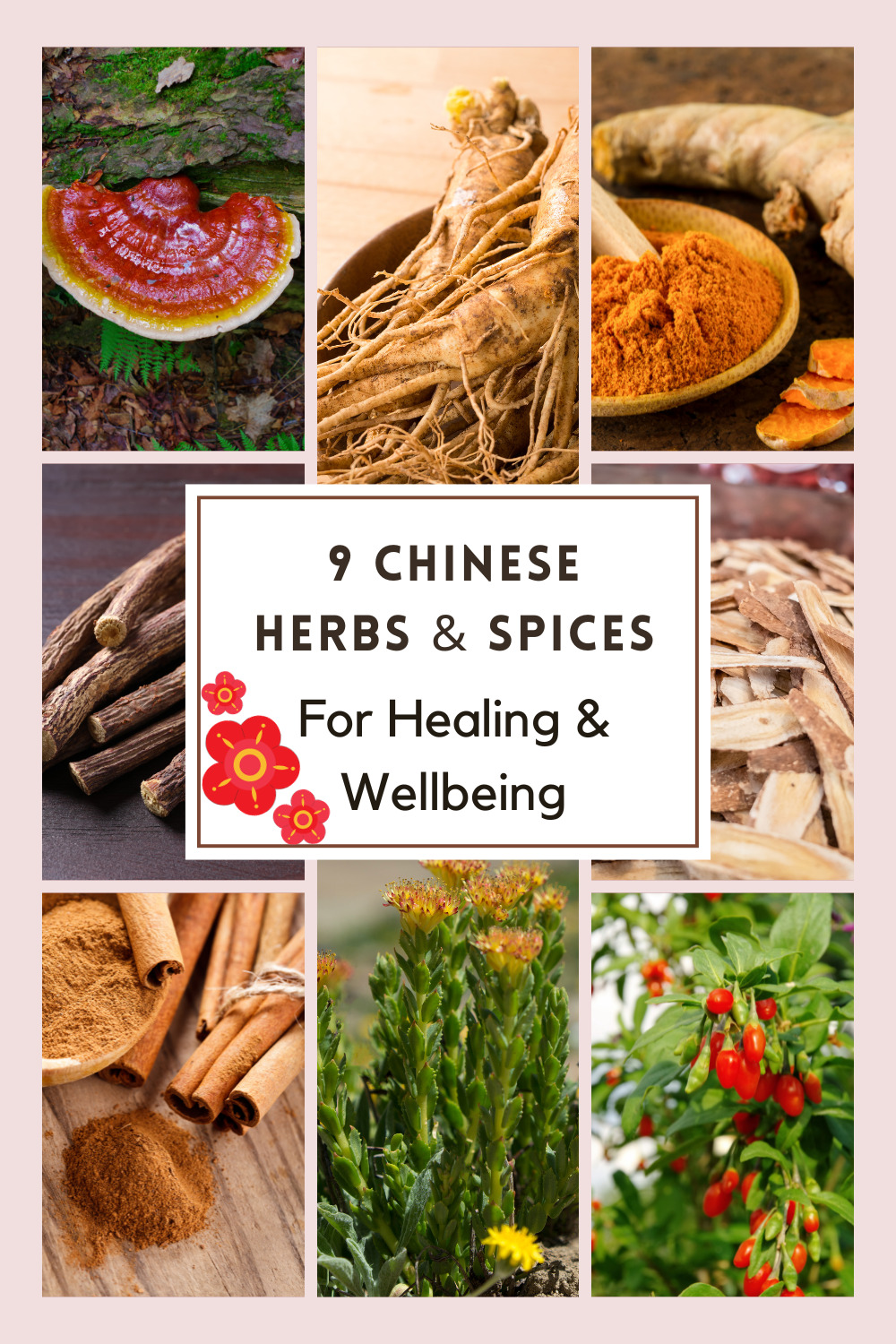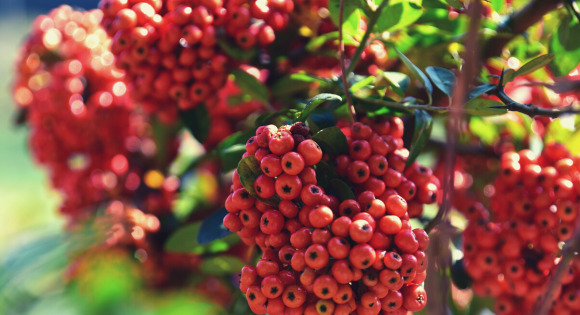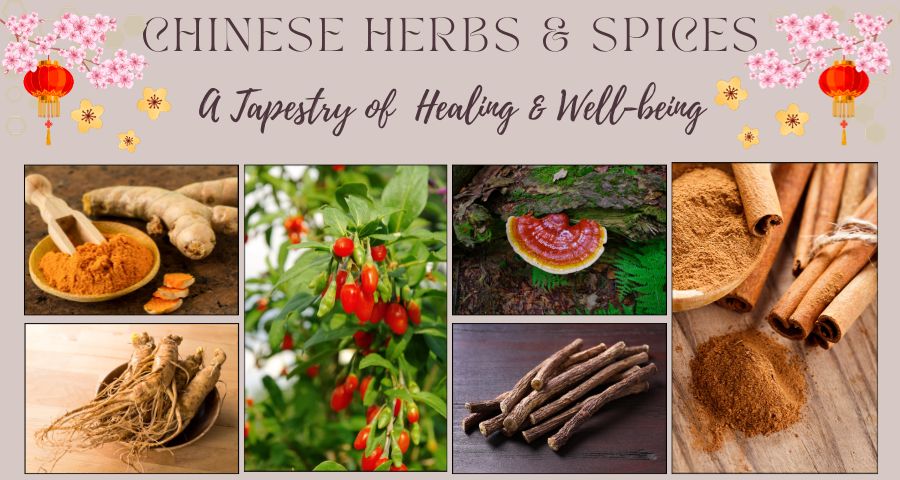Chinese herbs and spices have been an integral part of traditional Chinese medicine (TCM) for thousands of years. These natural wonders have played a significant role in promoting healing and enhancing overall wellbeing.
Rooted in ancient wisdom and steeped in tradition, Chinese herbs and spices offer a holistic approach to health that encompasses the mind, body, and spirit. This article explores the rich tapestry of Chinese herbs and spices, their historical significance, and their modern applications in promoting wellness.
Historical Roots of Chinese Herbs and Spices
The history of Chinese herbs and spices dates back over 2,500 years. Ancient texts such as the “Huangdi Neijing” (Yellow Emperor’s Inner Canon) and “Shennong Ben Cao Jing” (Shennong’s Classic of Materia Medica) document the use of herbs for medicinal purposes. Chinese emperors and scholars meticulously recorded their findings, passing down knowledge through generations.
One of the foundational principles of TCM is the concept of balance, known as Yin and Yang. Herbs and spices are classified in terms of their energetic properties, helping to restore this balance within the body. For example, herbs like ginseng are considered Yang, which is warming and energizing, while herbs like licorice root are Yin, possessing cooling and calming properties.

9 Common Chinese Herbs and Spices
Ginseng (Panax ginseng)
Perhaps the most famous of all Chinese herbs, ginseng is revered for its ability to boost energy, improve mental clarity, and enhance vitality. It’s a potent adaptogen, helping the body adapt to stress.
Astragalus (Astragalus membranaceus)
Known for its immune-boosting properties, astragalus has been used for centuries to strengthen the body’s defense mechanisms. It is also believed to increase stamina and longevity.
Reishi Mushroom (Ganoderma lucidum)
Reishi, often referred to as the “mushroom of immortality,” is associated with longevity, immune support, and reducing stress. It contains powerful antioxidants and may help balance the immune system.
Turmeric (Curcuma longa)
While not native to China, turmeric has found its place in TCM for its anti-inflammatory and pain-relieving properties. Its active compound, curcumin, is widely recognized for its health benefits.
Cinnamon (Cinnamomum cassia)
Cinnamon is used to invigorate the circulation of Qi (vital energy) and blood in TCM. It’s believed to improve digestion, reduce cold-related ailments, and regulate blood sugar levels.

Goji Berries (Lycium barbarum)
These nutrient-dense berries are known for their antioxidant content and are believed to support eye health, boost the immune system, and promote longevity.
Licorice Root (Glycyrrhiza glabra)
Licorice root is often used to harmonize the effects of other herbs in TCM formulas. It has anti-inflammatory properties and is believed to soothe the digestive tract.
Rhodiola (Rhodiola rosea)
Rhodiola enhances physical and mental stamina, reduces stress, and improves mood. It’s an adaptogen that helps the body adapt to various stressors.
Schisandra (Schisandra chinensis)
Known as the “five-flavor berry,” Schisandra is believed to benefit the five major organs in TCM—liver, lungs, heart, kidneys, and spleen. It’s used to improve vitality and mental clarity.

Modern Applications of Chinese Herbs and Spices
In the modern world, Chinese herbs and spices are experiencing a resurgence in popularity, driven by an increased interest in natural remedies and holistic wellness. Their applications extend beyond traditional medicine, finding their way into various aspects of modern living.
Nutraceuticals and Supplements
Chinese herbs are now available in various forms, including capsules, teas, and tinctures, making it convenient for people to incorporate them into their daily routines. Ginseng supplements, for example, are widely used to enhance energy and mental focus.
Culinary Delights
Chinese herbs and spices are not limited to medicine; they are an integral part of Chinese cuisine. Ingredients like ginger, garlic, and star anise add flavor to dishes and offer digestive benefits. Turmeric and cinnamon are used globally for their taste and potential health advantages.
Holistic Wellness Habits
Traditional Chinese Medicine has inspired holistic wellness practices such as acupuncture, acupressure, and Qigong. These practices often incorporate herbs and spices to elevate their therapeutic effects.
Related: The Healing Power of Crystals: Mystical Gems for Mind, Body, and Spirit

Skincare and Beauty
Chinese herbs are increasingly used in skincare products due to their antioxidant and anti-aging properties. Ingredients like goji berry extract and ginseng are found in serums and creams to promote healthy, radiant skin.
Stress Management
Adaptogenic herbs like rhodiola and reishi are gaining popularity as natural remedies for stress and anxiety. They are used in herbal teas, supplements, and even incorporated into stress-relief rituals.
Fitness and Sports
Chinese herbs are finding their way into the fitness world as natural performance enhancers. Astragalus, for instance, is used by athletes and fitness enthusiasts to support endurance and recovery.
Conclusion
Chinese herbs and spices represent a profound legacy of healing and well-being that has endured for millennia. From ancient emperors seeking longevity to modern individuals seeking holistic wellness, these natural wonders have stood the test of time. Their applications span across traditional medicine, culinary delights, skincare, and modern wellness practices, showcasing their versatility and enduring relevance.
As our understanding of these herbs deepens, and scientific research validates their benefits, we can expect Chinese herbs and spices to continue to play a pivotal role in promoting health and enhancing our overall sense of wellbeing. Embracing these ancient treasures can provide a bridge between the wisdom of the past and the needs of our modern lives, helping us achieve balance and vitality in an ever-evolving world. So why wait? Try some of these Chinese herbs and spices to enjoy their amazing benefits!
Sending you lots of love, light and oriental well-being induced sensations
Anthea

